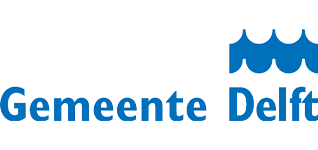City of Delft

The city of Delft is operating an active energy policy that has enabled it to reduce its carbon emissions by 15% between 1990 and 2022. In 2011, the Dutch city voted to target carbon neutrality by 2050 with the “Delft energy neutral 2050” strategy. But only 2% of the local carbon emissions are directly controlled by the city’s actions (municipal buildings and facilities).
In addition, a number of citizen and entrepreneurial initiatives for sustainable development are being launched. Delft has therefore taken on the role of facilitating citizen-led projects. This has led to the city of Delft becoming one of the members of the Executive Board of Energy Cities.
Citizen energy and e-deals at the heart of Delft’s strategy
A number of citizens and companies wanted to achieve energy independence by producing their own energy in order to reduce their carbon footprint and costs. The city decided to encourage these local groups to take on more responsibilities. It empowered them to interpret objectives, and provided funding and other resources in order for them to achieve these objectives.
It also implemented a local version of the Dutch Green Deal: the e-deal. This tool is intended to help fund citizen-led projects that support Delft’s ambitions for energy and climate transition. The projects must be completed and have sources of funding. The city provides subsidies and boosts project visibility.
Seventeen local stakeholders have signed deals and four projects have been completed. One of these led to the installation of a solar farm on the rooftops of a public school, driven by parents and with the help of the local grocery store, Ekoplaza. (Read more on the case study here.) A Green Village was also built, a sustainable neighbourhood initiative emerged, and the city uses a fleet of electric vehicles to import goods.
Overcoming the economic obstacles to a citizen and local energy transition
In order to support citizen participation in the local energy transition, in 2006, Delft created an energy-saving fund via a loan from the National Bank. This fund is used to grant low-interest loans to citizens and non-profit organisations. They can use these loans to invest in renewable energy systems, including heat pumps, solar panels and/or energy-saving measures. There is an additional financial tool citizens can use to renovate their homes.
The fund is self-sustained: over time, it is replenished as loans are paid off. Since it was launched, the Delft city council has maintained and developed this model of a self-sustaining fund, which leads to improvements, even on a small budget.
A grant system was recently added to this scheme. A total of 21 homes and 2 clubs have applied for it so far. This system has enabled private homeowners to receive up to €1,850 if its residents reduce their energy consumption by over 10% (according to the energy index).
Sources: Official website of the City of Delft; Energy Cities;
 The Netherlands
The Netherlands